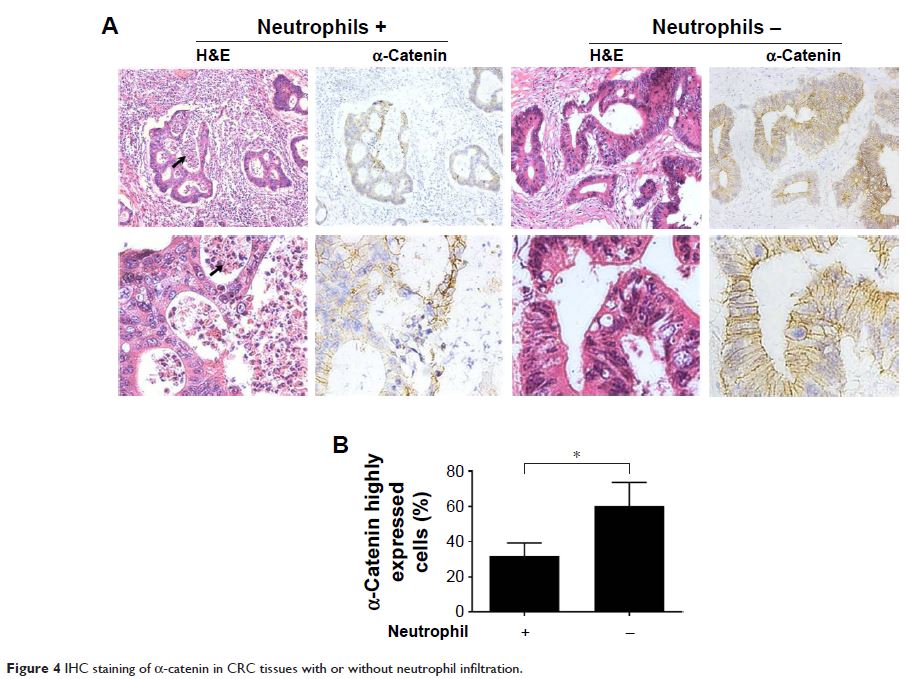109568
论文已发表
注册即可获取德孚的最新动态
IF 收录期刊
- 3.4 Breast Cancer (Dove Med Press)
- 3.2 Clin Epidemiol
- 2.6 Cancer Manag Res
- 2.9 Infect Drug Resist
- 3.7 Clin Interv Aging
- 5.1 Drug Des Dev Ther
- 3.1 Int J Chronic Obstr
- 6.6 Int J Nanomed
- 2.6 Int J Women's Health
- 2.9 Neuropsych Dis Treat
- 2.8 OncoTargets Ther
- 2.0 Patient Prefer Adher
- 2.2 Ther Clin Risk Manag
- 2.5 J Pain Res
- 3.0 Diabet Metab Synd Ob
- 3.2 Psychol Res Behav Ma
- 3.4 Nat Sci Sleep
- 1.8 Pharmgenomics Pers Med
- 2.0 Risk Manag Healthc Policy
- 4.1 J Inflamm Res
- 2.0 Int J Gen Med
- 3.4 J Hepatocell Carcinoma
- 3.0 J Asthma Allergy
- 2.2 Clin Cosmet Investig Dermatol
- 2.4 J Multidiscip Healthc

脂多糖诱导的 α-catenin 下调可通过 NF-κB 信号依赖性途径增强人结肠直肠癌细胞的运动性
Authors Cheng G, Yang S, Zhang G, Xu Y, Liu X, Sun W, Zhu L
Received 6 October 2016
Accepted for publication 18 November 2016
Published 14 December 2016 Volume 2016:9 Pages 7563—7571
DOI https://doi.org/10.2147/OTT.S123986
Checked for plagiarism Yes
Review by Single-blind
Peer reviewers approved by Dr Chang Liu
Peer reviewer comments 2
Editor who approved publication: Dr Carlos Vigil Gonzales
Abstract: α-Catenin is an important molecule involved in the maintenance of cell–cell
adhesion and a prognostic marker in cancer since its expression is essential
for preventing cancer metastasis. However, the mechanism that leads to the
downregulation of α-catenin in cancer progression remains unclear. The present
study revealed that lipopolysaccharide (LPS)-induced NF-κB signaling activation
suppressed α-catenin expression and motility in SW620 colorectal cancer (CRC)
cells, using real-time polymerase chain reaction, Western blotting, and
transwell migration assays. LPS treatment reduced both the mRNA and protein
expression of α-catenin and thereby enhanced cell motility. Conversely,
incubating cells with an NF-κB inhibitor disrupted these effects. Furthermore,
the ectopic expression of p65 alone mimicked the effects of LPS stimulation. In
CRC tissues, the presence of enteric bacterial LPS-related neutrophil-enriched
foci was correlated with α-catenin downregulation. Collectively, these findings
suggest that LPS-induced NF-κB signaling is related to α-catenin suppression
and enhanced cell motility in CRC. Therefore, NF-κB is a novel potential
therapeutic target for CRC metastasis.
Keywords: lipopolysaccharide, colorectal
neoplasms, α-catenin, neoplasm metastasis
